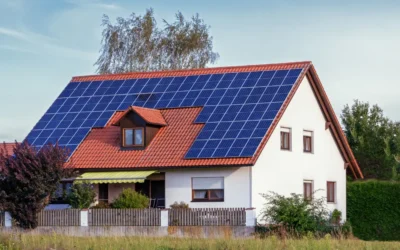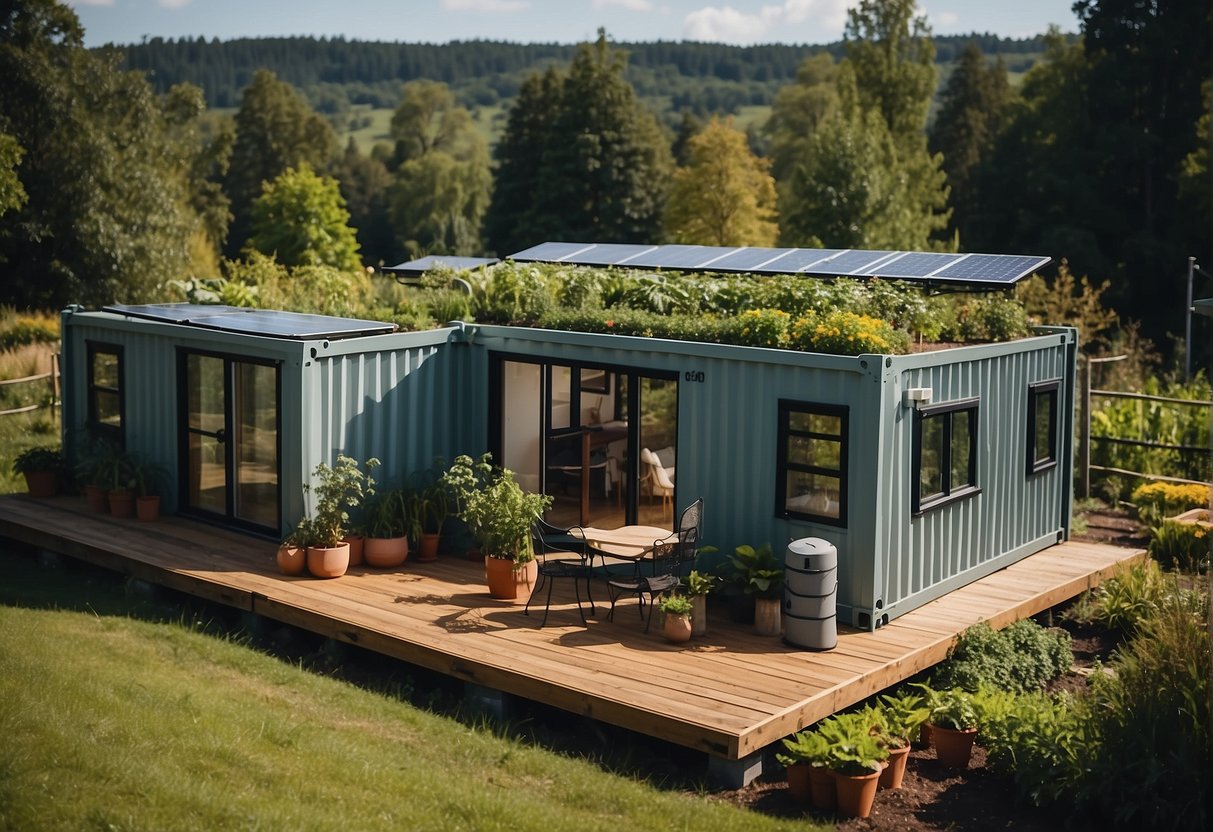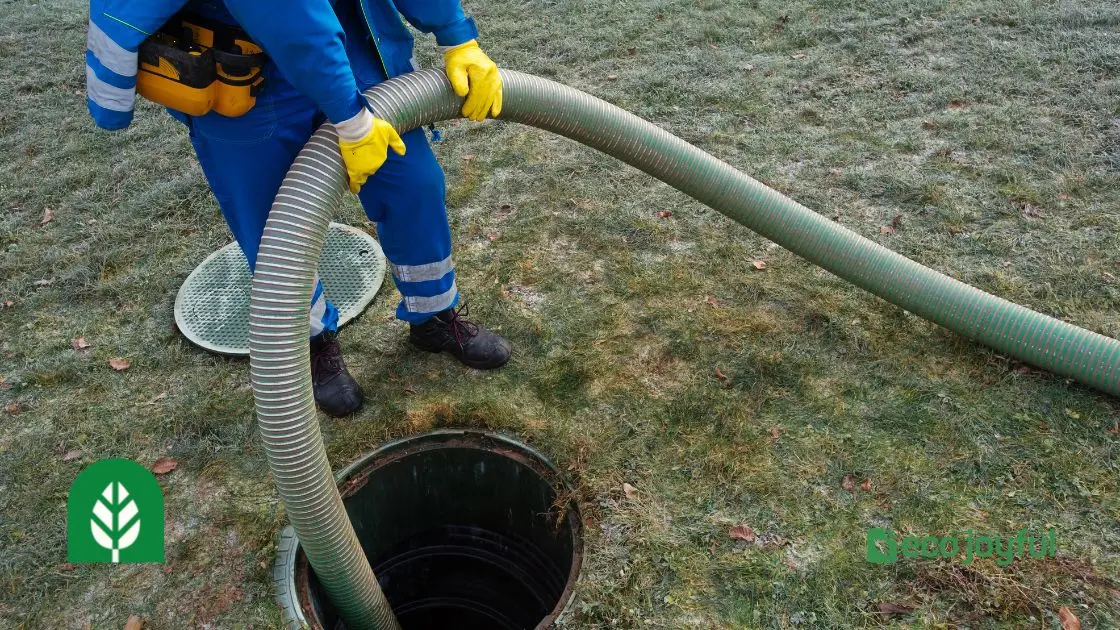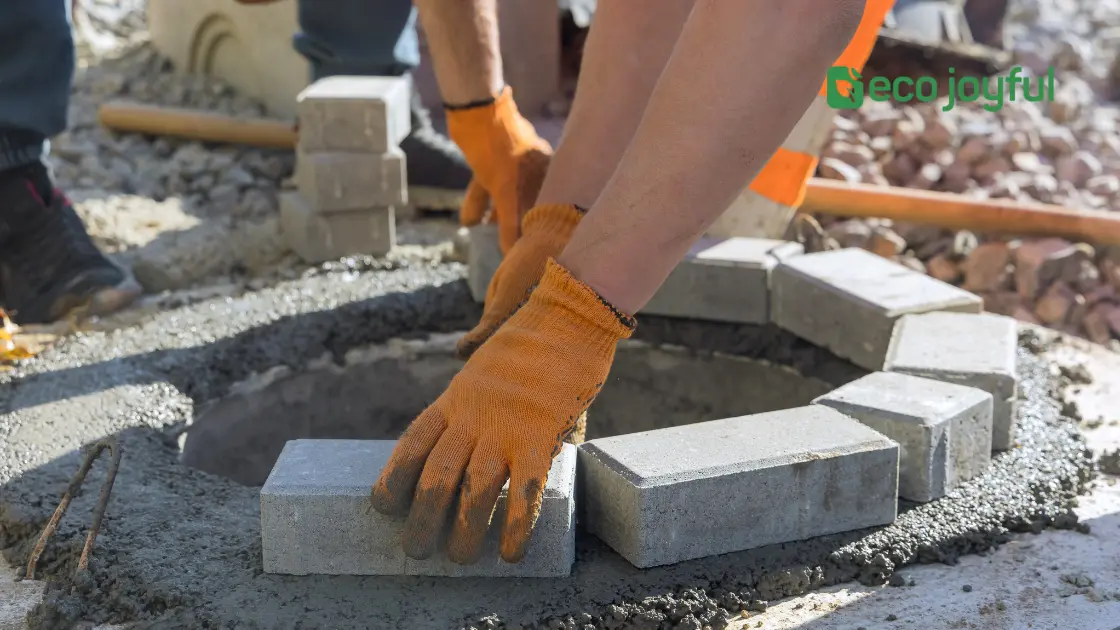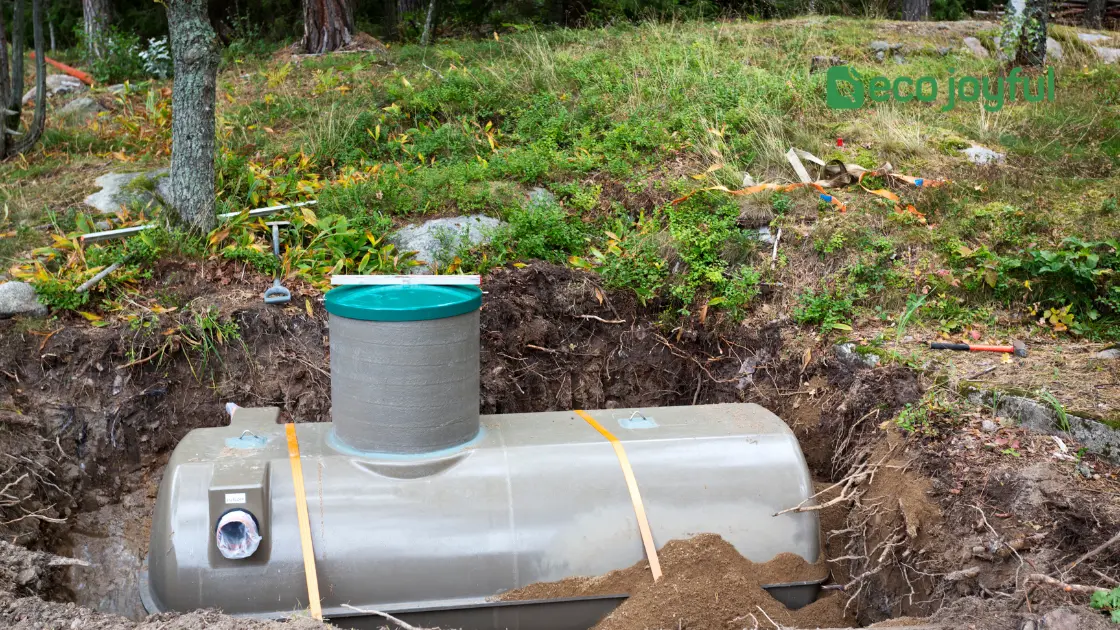Water management off grid is important and following these 10 tips can ensure success. These include planning for water needs, using appropriate filtration systems, collecting rainwater, and minimizing water waste.
Water is an essential resource for human survival, making it critical for people living off the grid to carefully manage their water resources. Water management off grid presents unique challenges and requires careful planning and efficient use of resources. These challenges can range from limited access to water sources, environmental factors, and the need for sustainable solutions.
We will explore 10 tips for water management off grid, including planning, filtration, rainwater harvesting, and minimizing water waste. By following these tips, you can ensure a consistent supply of clean water for your family’s needs.
Tip 1: Harvest Rainwater
Managing water off-grid can be challenging, but it is a necessary task for anyone who wants to live sustainably. One of the best ways to do this is by harvesting rainwater. Rainwater harvesting is a simple yet effective way to collect water that would otherwise go to waste. Here’s how to get started with tip 1: Harvest Rainwater for water management off-grid:
Choose The Right Roofing Material
The first step to harvesting rainwater is to ensure that your roof is made of a suitable material. The best materials for rainwater harvesting are metal, concrete, clay tiles, and asphalt shingles. These materials are durable and can withstand heavy rainfall. Avoid using cedar shingles or any other porous material as it can contaminate the water.
Install A Gutter System
The second step is to install a gutter system to collect water. Your gutter system should be made of non-toxic, non-corrosive material such as PVC or aluminum. Make sure that your gutters are sloped towards the downspouts, and the downspouts are direct to the storage tank. Ensure that you keep the gutters clean to minimize contamination of the harvested water.
Add Storage To Collect Water
The final step is to add storage to collect water. There are different options available for storing rainwater, but the most common ones are above-ground tanks, underground cisterns, and barrels. Choose the right size of storage based on your water needs and the space available. Make sure that the storage system is clean and does not contaminate the water. You may also want to install a filtration system to ensure that the water is safe for use.
By following these three steps, you can easily harvest rainwater and manage water off-grid. Stay tuned for our next tips for water management off-grid!

Credit: todayshomeowner.com
Tip 2: Use Less Water
Using less water is an important tip for water management off the grid. By reducing your water consumption, you can conserve this precious resource and make your off-grid lifestyle more sustainable and eco-friendly.
Water management is one of the most important things you need to consider when you’re living off-grid. Not only is it crucial to your survival, but also to the environment around you. Using less water is one of the easiest ways to conserve it and make it last longer. Here are some tips you can use for using less water.
Fix Leaks
One of the biggest culprits of water waste is leaky pipes and faucets. A small leak can waste a significant amount of water every day. Therefore, it’s important to fix leaks as soon as you notice them. Doing this will save you money and water in the long run. If you’re not sure where the leaks are, turn off all the taps and check your water meter. If there’s still a water flow moving, you know you have a leak.
Install Low-flow Fixtures
Using low-flow fixtures is the best way to reduce the amount of water used in your home. They work by reducing the amount of water that comes out of the faucet or showerhead. There are many low-flow fixtures available in the market, including low-flow showerheads, low-flow faucets, and low-flow toilets. These fixtures can cut your water consumption by up to 50%.
Take Shorter Showers
Taking shorter showers can also help you reduce your water usage. You can reduce your showering time by setting a timer or using a showerhead with a timer. Alternatively, you can also consider taking a navy shower, where you turn off the water while you lather up, then turn it back on to rinse.
In conclusion, using less water is all about being mindful of your usage. Adopting the above tips will not only help you save water but also reduce the amount of money you spend on your utilities. Remember, water is a valuable resource, and we all have a responsibility to conserve it.
Tip 3: Reuse Graywater
One of the essential tips for water management off-grid is to reuse graywater. This type of wastewater from your shower, laundry, or sink can be used for irrigation, flushing toilets, or cleaning. It’s a great way to conserve water and reduce your environmental impact.
Graywater is one of the most valuable resources when it comes to off-grid water management. It simply refers to all the wastewater produced in a household that is not contaminated with fecal matter, such as water from showers, sinks, and laundry. By reusing graywater, you can greatly reduce your water demand and sustainably manage your water usage. Here are some tips on how to reuse graywater and maximize its potential for off-grid water management.
Create A Graywater System
The first step toward reusing graywater is to create a system that separates it from blackwater in a safe and hygienic way. This system should not only be effective but also easy to maintain. One simple way to create a graywater system is to divert the wastewater from your sinks, showers, and laundry to a separate tank or holding area. From there, you can use the graywater for various purposes such as landscaping or gardening.
Use Graywater For Irrigation
Graywater can be used to water your plants, lawn, or garden. This can reduce your water consumption and save you money on utility bills. However, it is important to note that not all plants can tolerate graywater due to the salts and additives in the wastewater. So, before using graywater, make sure to consult with a professional to ensure that it will not harm your plants.
Filter Graywater For Safe Use
Before reusing graywater for any purpose, it is crucial to filter it properly to remove any contaminants. There are a number of filtration systems available on the market that can effectively remove bacteria and impurities from graywater. A sand filter or slow sand filter are simple and efficient ways to filter wastewater. Once filtered, the graywater can be used for various purposes such as flushing toilets, washing cars, or even for outdoor showers.
In conclusion, reusing graywater is a great way to sustainably manage your water usage and reduce your environmental impact. By following the tips mentioned above, you can create a graywater system that is safe, efficient, and easy to maintain. Remember to always consult with a professional before reusing graywater to ensure that it will not harm your health or the environment.
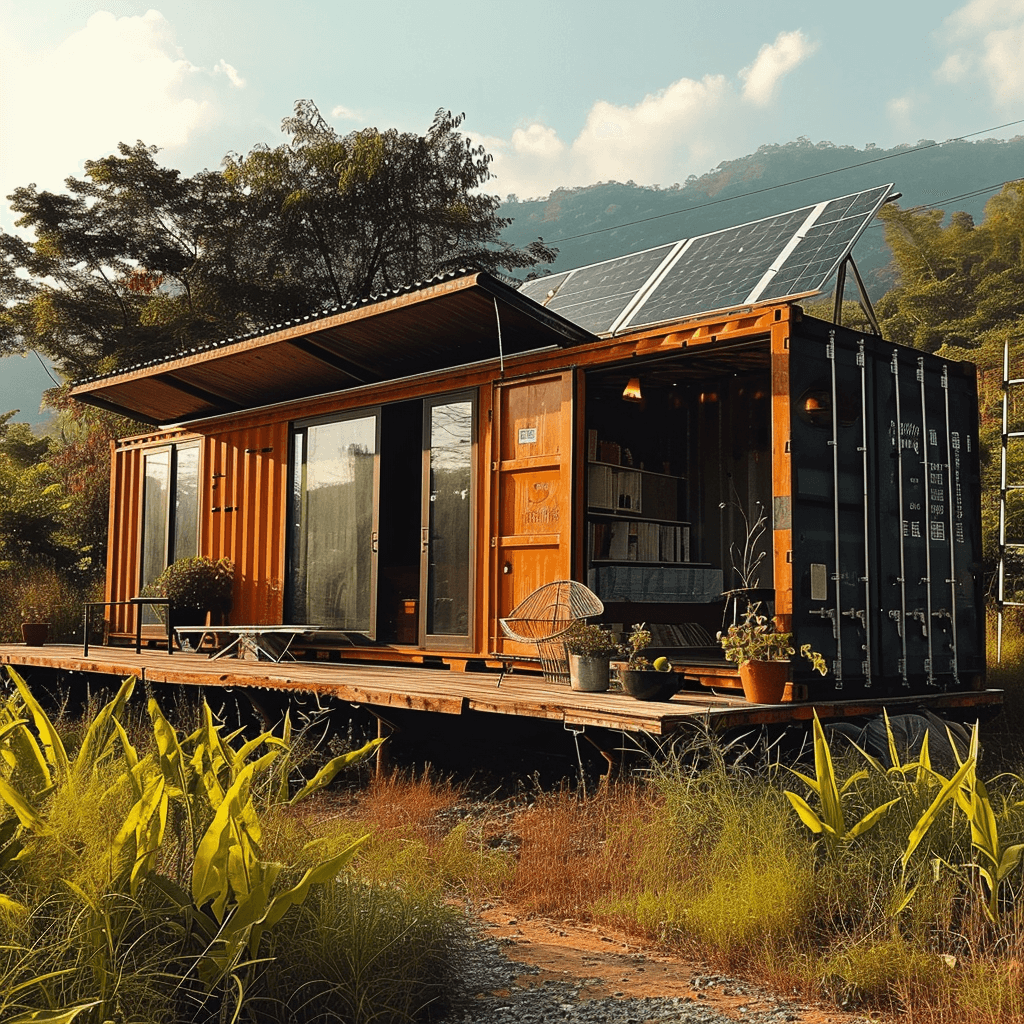
Credit: www.livinginacontainer.com
Tip 4: Implement Drip Irrigation
If you’re looking to optimize your off-grid water management system, implementing a drip irrigation system is a great option. Drip irrigation is an efficient way to water your plants, as it delivers water directly to the roots, reducing evaporation and waste.
Set Up Drip Irrigation System
The first step in implementing a drip irrigation system is to set it up correctly. You’ll need to create a water source, such as a rainwater harvesting system, and connect it to your drip irrigation system. You can either use a pre-built drip irrigation system or create your own by purchasing tubing, emitters, and fittings.
Choose The Right Drip Irrigation Emitters
Choosing the right emitters for your drip irrigation system is important to ensure efficient watering. Emitters come in various sizes and flow rates, so it’s important to match your emitter to your plants’ water needs. For example, larger plants may require a higher flow rate, while smaller plants need smaller emitters.
Time Your Irrigation
Timing your irrigation is an important consideration to avoid over-watering or under watering your plants. A good rule of thumb is to water your plants early in the morning or late in the evening, when temperatures are cooler, and plants can absorb the water more efficiently. You may also consider using a timer to automate your irrigation system.
- Set up your drip irrigation system correctly to ensure proper watering.
- Choose the right emitters based on your plants’ water needs.
- Time your irrigation to avoid over or under-watering.
Implementing these tips will help you create an effective off-grid water management system and ensure that your plants receive the proper amount of water they need to thrive.
Tip 5: Plant A Water-wise Garden
Creating a water-efficient garden is crucial for water management off grid. By selecting native, drought-resistant plants and applying proper irrigation methods, you can greatly reduce water consumption. Planting a water-wise garden is not only eco-friendly but also cost-effective in the long run.
If you live off-grid, water management can be challenging. One way to conserve water is by planting a water-wise garden. In this way, you can enjoy a green landscape with lower water usage. Here’s how you can do it:
Choose The Right Plants
Choosing the right plants can make a significant difference in water management. Native plants are best suited for off-grid gardens as they are adapted to the local climate and require less maintenance. Drought-resistant plants such as succulents are also excellent choices. When selecting plants, consider their water requirements.
Group Plants By Water Needs
Grouping plants by their water needs can make watering more efficient. Plants with similar water requirements can be watered together, so there is no over or under-watering. This method also helps to reduce water wastage and ensures that each plant gets the right amount of water.
Amend Soil To Retain Moisture
Amending soil can help the soil retain moisture, enabling the plants to use less water. To amend the soil, add organic matter such as compost, grass clippings, or leaves. This method helps the soil retain moisture by reducing evaporation and improving water absorption.
To sum it up, planting a water-wise garden can be a smart move towards off-grid water management. Selecting the best plants based on their water requirements, grouping them accordingly, and amending the soil can help you save water, reduce wastage, and promote a healthy garden.
Tip 6: Monitor Water Usage
To manage water efficiently in off-grid locations, monitoring water usage is vital. Keeping track of how much water is being used can help to reduce wastage and ensure that water resources are used wisely. By monitoring water usage, you can make adjustments and improvements to your water management system to optimize water usage.
As you live off the grid, it’s crucial to be mindful of the amount of water you’re consuming. Monitoring water usage helps you track your daily consumption, identify leaks, and adjust your watering schedule. Here are some tips to help you in monitoring your water usage:
Track Water Consumption
One of the simplest ways to monitor your water usage is by keeping a log of your daily consumption. You can use a notebook or an app to record your daily usage. Tracking the water consumption helps you identify your peak usage hours and monitor any drastic changes in your consumption.
Identify Leaks And Fix Them
Leaks are silent culprits that cost you a lot in terms of water wastage. To protect your water supply, you need to identify and fix leaks quickly. Start by checking your water tanks, hoses, and faucets for leaks regularly. If you notice any drips, fix them immediately to prevent further waste of water.
Adjust Watering Schedule As Needed
Watering your plants is another area where you can conserve water. By scheduling your watering, you can avoid watering your plants when they don’t need it. Check your plants regularly to determine when they need water. It’s also a good idea to water your plants during the coolest parts of the day to reduce evaporation.
In conclusion, monitoring your water usage may seem like a tedious task, but it’s a crucial step in water conservation. By tracking your water consumption, identifying leaks, and adjusting your watering schedule, you can make significant savings in your water supply. Adopting these tips will not only save you money but also help conserve this precious resource.
Tip 7: Consider Alternative Water Sources
While it is always wise to have a backup plan, relying on just one source of water may not be feasible in an off-grid setup. You need to consider all possible options to ensure that you are never out of water when you need it the most. Here are some alternative water sources to consider:
Dig A Well
If you have access to groundwater, digging a well in the vicinity of your property is an excellent option. A well provides a consistent and reliable source of water, as long as you live in an area with a high water table.
Use A Pond Or Stream
If you are lucky enough to have a stream or pond on your property, you can use them as sources of water. However, make sure you have an effective filtration system installed to remove any impurities, toxins, or contaminants. This will make the water safe for drinking and other household uses.
Consider A Hauled Water System
A hauled water system involves transporting water in bulk from nearby sources such as water wells or other available water sources. You can store water in large tanks and have it delivered to your property regularly on an as-needed basis. This is a great option for those who don’t have a nearby water source or simply prefer to have water on standby at all times.
Considering alternative water sources can save you from water-related emergencies in off-grid living. Storing water in large tanks when possible is a wise choice, and it’s important to regularly maintain and test your water sources to guarantee their quality. Having alternative sources available is critical to staying on top of off-grid living.
Tip 8: Manage Wastewater Properly
Table of Contents
Tip 9: Proper Water Storage
Proper water storage is crucial for off-grid water management. Store water in clean, food-grade containers in a cool and dark area away from direct sunlight. It is also important to rotate and disinfect your water storage regularly.
When it comes to off-grid living, water management is essential for survival. One important aspect is proper water storage. In this section, we will discuss some tips that you should keep in mind for proper water storage.
Store Water In Food-grade Containers
Storing water in food-grade containers is essential to avoid any contamination that may lead to health issues. Plastic containers made of high-density polyethylene (HDPE) or polypropylene (PP) are good options. HDPE containers are opaque, which helps in keeping water out of direct sunlight, while PP containers are translucent, which helps you keep an eye on water levels. Both materials are safe for storing drinking water.
Keep Water Out Of Direct Sunlight
Storing water in direct sunlight is not recommended, as it can promote the growth of algae and bacteria. It’s better to store water in a shaded area, or in a place that does not receive direct sunlight for long periods. You can cover your water containers with a dark cloth or blanket to protect them from sunlight.
Label Your Water Containers
Labeling your water containers is an important step to ensure that you can easily identify the contents. A label should include the date of filling, the source of water, and any treatment that the water may have undergone. This information will help you rotate your water supply and ensure that you are using the oldest supply first.
Other Tips For Proper Water Storage
Here are some additional tips that you can follow for proper water storage:
- Store water away from chemicals, gasoline, or other contaminants that may seep into the containers.
- Ensure that your water containers have tight-fitting lids to prevent any leakage or evaporation.
- Store water containers off the ground on shelves or pallets to avoid any possible water damage from flooding or other incidents.
- Maintain a regular schedule to rotate your water supply to ensure that it stays fresh.
- You may consider adding chlorine bleach to your water for disinfection but follow the EPA instructions to ensure its safety.
Proper water storage is crucial when it comes to off-grid living. By following these tips and keeping your water supply clean and safe, you can be sure that you and your family have access to the water you need to survive.
Tip 10: Prepare For Emergencies
Always be prepared for emergencies when managing water off-grid. It’s important to have extra water storage, filtration systems, and a plan for accessing water in case of an unexpected event.
Off-grid water management is challenging, and emergencies can make the situation worse. That’s why you need to prepare for emergencies. By being proactive, you can stay ahead of the curve and take appropriate measures to avoid water scarcity in the event of an emergency.
Have A Backup Water Supply Plan
Having a backup water supply plan is crucial in the off-grid lifestyle. Considering the limited sources of water, you need to have an accumulated water reserve that will last you through emergencies. An essential step is always to have a spare tank ready for transportation if you need to fetch water from afar.
Know How To Treat Water In An Emergency
Treating water in an emergency is vital because it can help you prevent water-related diseases. You need to have a clear understanding of different water treatment methods like boiling, distillation, and chlorination to ensure that you choose the best method according to your available resources. Therefore, researching and investing in water treatment tablets, iodine drops, or bleach is essential to ensure that you can always have chemically treated water on standby.
Store Extra Water Purification Supplies
In emergencies, water purification supplies can come in handy, and therefore having extras can save you time and effort. It is crucial to store extra purification supplies like filter cartridges, activated carbon, and water softeners to replace the worn-out parts. A stock of extra supplies ensures that your water treatment process continues undisrupted in case of an emergency.
In conclusion, emergency preparedness is a crucial part of off-grid water management. By having a backup water supply plan, knowing how to treat water in emergencies and having extra water purification supplies, you can stay ahead of the curve and avoid water scarcity during emergencies.
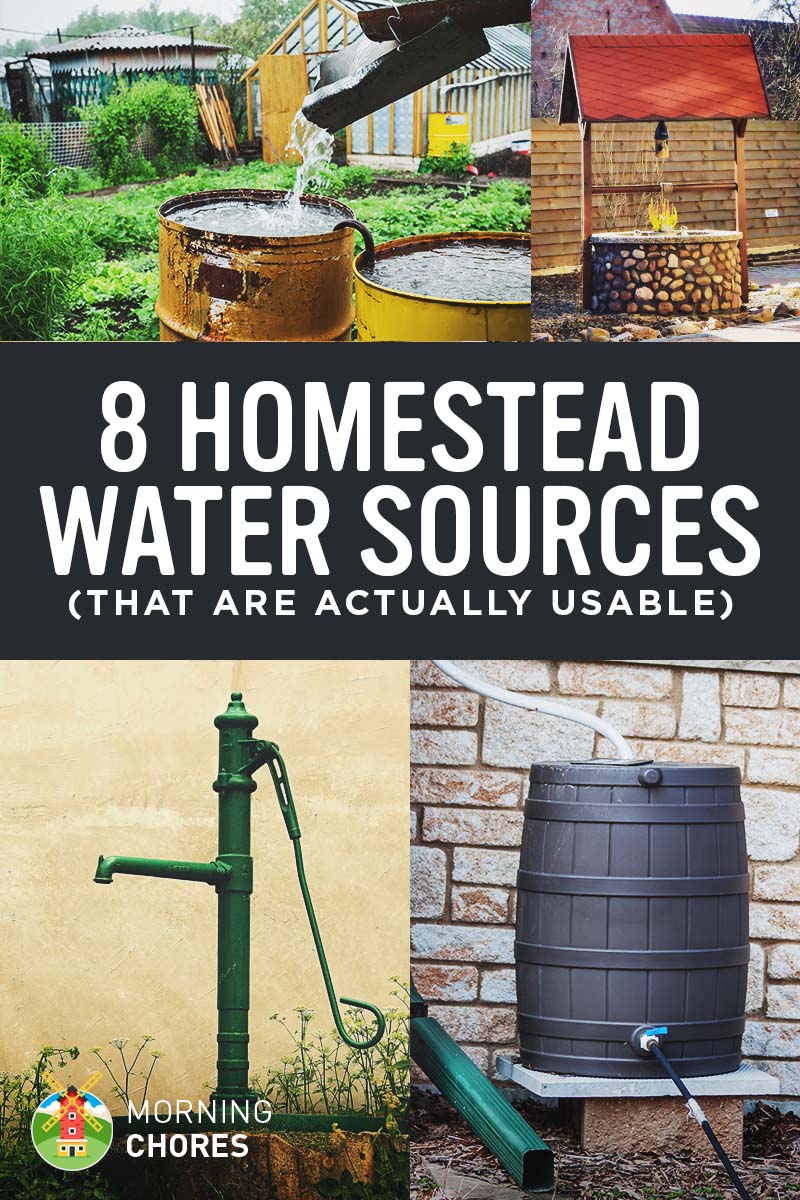
Credit: morningchores.com
Conclusion
To sum up, managing water off-grid can be a daunting task, but with the right knowledge and preparation, it is definitely achievable. By implementing the tips we’ve discussed, such as collecting rainwater, being mindful of water usage, and properly maintaining equipment, you’ll be able to not only survive but thrive in off-grid living.
Remember, water is a precious resource, and with responsible management, you can make the most of it while living off the grid.




